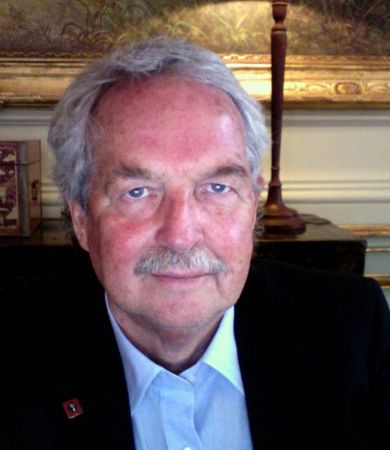
Dieter Schmidt
1947 - 2019
It is with great sadness that we announce that Dieter Schmidt, Emeritus Professor of Neurology, Free University of Berlin, Germany, and, since his retirement, Head of an Epilepsy Research Group in Berlin, passed away quietly on Sunday, September 8th 2019 in Berlin at the age of 72. Dr. Schmidt was an internationally renowned clinical epileptologist with contributions in numerous areas of clinical epilepsy over a period of almost 50 years. He held the Ambassador for Epilepsy award of the International League Against Epilepsy (ILAE) as a recognition of outstanding international contributions to activities advancing the cause of epilepsy.
Dr. Schmidt was born in Bad Schwalbach, Germany. He was trained in medicine in Heidelberg and subsequently trained in neurology in the group of Dieter Janz at the Neurology Department of the Heidelberg University. In the early 1970s he worked as a visiting scientist at the National Institutes of Health in Bethesda, MD, and was trained both by Kiffin Penry in clinical epileptology and Harvey Kupferberg in preclinical strategies used by the Anticonvulsant Screening Project at the time. During his time in the U.S., he successfully passed the medical board exam.
In 1973, he moved to West-Berlin, where he stayed till 1985 in the Neurology Department of the Free University, which was chaired by Dieter Janz. In 1985, he moved to Munich where he became professor in the group of Thomas Brandt, who was the Chair of the Neurology Department of the Ludwig-Maximilians-University. In 1989, he became the successor of Dieter Janz in Berlin and took over the chair of the Clinic of Neurology of the Free University. Unfortunately, he became ill and had to retire in 1992 to become later the Head of an Epilepsy Research Group in Berlin, which organized several important clinical studies. He was highly respected by his colleagues and known as one who offered valuable advice and helped nurture the careers of more junior colleagues.
In 1983 he received the Ambassador for Epilepsy award of the ILAE and in 1984 the Hauptmann-Award of the Epilepsy Board of Trustees (Bonn, Germany). Dr. Schmidt has over 200 peer-reviewed publications and was the editor or coeditor of several volumes on epilepsy. In 1987, he became Founding and Managing Editor of Epilepsy Research, which he remained for 20 years. In 2014, he became associate editor of Epilepsia, and continued in that role until his death.
In 2016, Dieter was selected as one of the Founding and Managing Editors-in-Chief of Epilepsia Open. He worked tirelessly in selecting high quality articles for the journal and implementing policies that helped shape the ascending course of Epilepsia Open in the competitive field of open access publishing of high quality in epilepsy research.
Dieter Schmidt was an excellent speaker and invited to deliver more than 100 lectures throughout the world. He also acted as a scientific organizer of several workshops and symposia on epilepsy research, including the workshop series ”New Horizons in the Development of Antiepileptic Drugs” (together with W. Löscher), which was first held in Philadelphia in 2002.
Although Dr. Schmidt covered a number of areas of clinical epilepsy research over the years, including clinical pharmacology of anti-seizure drugs, assessment of the adverse drug effects, the efficacy of drug therapy and of surgical treatment, his studies of the natural history of treated epilepsy in population-based studies (together with Matti Sillanpää) are among his most important contributions, which he published in an impressive series of Brain papers. He showed that, contrary to well-publicized results of retrospective studies in hospital-based series, complex patterns of remission and relapse can be observed in population-based studies of patients followed for several decades since the onset of epilepsy in childhood. Dr. Schmidt demonstrated that patients switch in and out of remission, and the factors that are associated with remission and relapse can be predicted – to a degree – early in the treatment by observing seizure-clustering. The effect of different strategies of drug treatment – single drug treatment versus switching to another monotherapy or adding another drug – have been explored by Dr. Schmidt in early publications that have withstood the test of time.
In addition to his important scientific contributions, which included several highly cited reviews, Dr. Schmidt was an excellent teacher and provided training and guidance for several fellows. For many colleagues throughout the world, he was a critical advisor and friend. All who knew him personally will miss him. The editors of Epilepsia and Epilepsia Open and members of the ILAE have lost a trusted colleague and an essential collaborator. Our thoughts are with his wife Ingeborg.
Submitted by Wolfgang Löscher, Michael Sperling, Astrid Nehlig, Dong Zhou, and Aristea Galanopoulou
Subscribe to the ILAE Newsletter
To subscribe, please click on the button below.
Please send me information about ILAE activities and other
information of interest to the epilepsy community